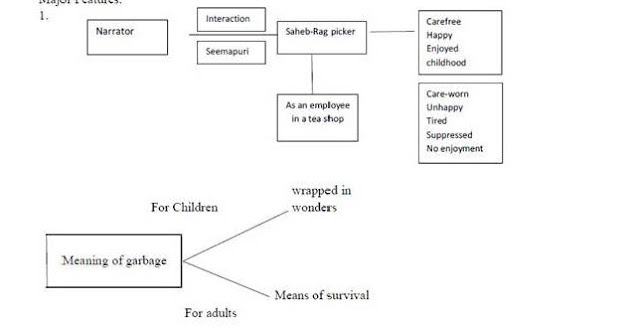Lost Spring: Stories of a Stolen Childhood (Gist)
Gist of the lesson:
Sometimes I find a rupee in the garbage
- The author examines and analyses the impoverished conditions and traditions that condemn children to a life of exploitation these children are denied education and are forced into hardships early in their lives.
- The writer encounters Saheb – a rag picker whose parents have left behind the life of poverty in Dhaka to earn a living in Delhi.
- His family like many other families of rag pickers lives in Seemapuri. They do not have any identification other than a ration card.
- The children do not go to school and they are excited at the prospect of finding a coin or even a ten-rupee note for rummaging in the garbage.
- It is the only way of earning -lives in impoverished conditions - resigned to their fate.
- The writer is pained to see Saheb, a rag picker whose name means the “lord of the universe”, lose the spark of childhood and roam barefoot with his friends.
- From morning to noon the author encounters him in a tea stall - is paid Rs. 800 He sadly realizes that he is no longer his own master and this loss of freedom weighs heavily on his tender shoulders.
I want to drive a Car
- The author then tells about another victim, Mukesh who wants to be a motor mechanic.
- Hailing from Firozabad, the center of India’s bangle making and glass blowing industry, he has always seen every one work in the glass making industry.
- His family like the others there, doesn’t not know that it is illegal for children to work in such close proximity to furnaces, in such high temperatures.
- They are exposed to various health hazards like losing their eyesight as they work in abysmal conditions, in dark and dingy cells.
- They lead a hand to mouth existence as they are caught in the vicious web of the money lenders, middlemen, police and traditions
- So burdened are the bangle makers of Firozabad that they have lost their ability to dream unlike Mukesh who dreams of driving a car.


